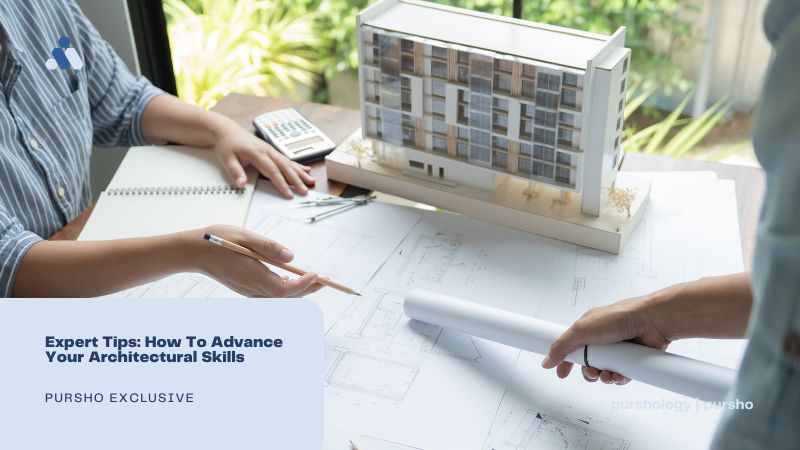Architects who aspire to improve their skills and remain competitive are always searching for ways to boost their abilities. Whether you’re a developing designer or an experienced professional aiming to refine your craft, here are six expert strategies that can help take your architectural journey to the next level:
Cultivate Design Sensibility
Design is a fundamental skill in architecture. Developing a strong design sensibility means improving your aptitude to imagine and plan spaces that are not just beautiful but also useful and lasting. Study various architectural types, examine famous architects’ creations, and deeply learn design theory’s rules. Try out various design tools and methods, starting from simple sketching with pencil to complex professional software. A mix of disciplines in your approach to designing can expand creativity and help you build a unique style for yourself. Keep in mind that every little decision made by a designer adds to the story of a place and the people who live there.
Master the Fundamentals of Construction
Knowing construction principles well is significant for an architect to make buildings that are both structurally strong and visually appealing. Dig into the basic elements of construction, including building materials and methods, structural engineering, and building rules. Learn more about construction drawings such as blueprints or specifications, and learn how you can communicate your design plan to those who build such as contractors and builders effectively. When you understand how to manage the complexities of construction, it guarantees that your architectural ideas will be transformed into reality with exactness and superiority. Think about this: the power of a building is not just in its design but also in its construction.
Develop Your Digital Skills
In this era of digital life, being good at using digital tools and technologies is very important for architects. From computer programs that can do 3D modelling to Building Information Modeling (BIM) systems, these digital tools give professionals new abilities in seeing, studying, and creating their designs with accuracy and speed. For instance, you could consider learning Rhino for architecture, a powerful software that enables architects to create complex 3D models and generate intricate parametric designs. When you become skilled in using these digital tools, it can help to make your workflow smooth and boost cooperation. It also allows you to show your creative skills in the world of technology.
Cultivate Collaboration and Communication Skills
Architecture is a field that naturally involves collaboration, as architects must cooperate with clients, consultants, and other parties involved to make projects happen. Develop good teamwork and communication abilities to express your design concepts, understand responses from others, and handle negotiations between different interests. Use active listening skills, and show empathy and diplomacy when you deal with clients and collaborators. Try creating an environment of openness within your design team where everyone feels included. Make collaboration the foundation of your architectural practice. This will allow you to use the knowledge and understanding of different people involved in a project, resulting in more excellent design solutions.
Embrace Sustainability and Environmental Design
Within a period where environment-related worries and climate alteration dominate, architects have an important place in creating a better future that is more sustainable. Bring in elements of sustainable design and ecological guardianship by incorporating environmentally friendly methods into your architectural projects. Look at groundbreaking technologies such as green building substances, passive designing tactics, as well as renewable energy systems. Do not ignore the importance of biophilic design. If you give priority to sustainability and environmental design, it will create spaces that improve occupants’ lives while keeping their ecological effects as low as possible. Every sustainable choice helps in making a healthier planet for the coming generations.
Stay Curious and Continuously Learn
Architecture is a field that doesn’t remain static but keeps changing due to progress in technology, cultural movements, and new design trends. Keep being curious and learning all the time by looking for chances for professional growth, going to workshops, or interacting with thinkers who are leaders in this area. Look into interdisciplinary links with connected fields such as urban planning, interior decoration, and landscape architecture. Commit to always learning, and welcome the journey of exploration that awaits you in architecture. Keep in mind that the seeking of knowledge is an ongoing path that feeds innovation and creative expression within this field.
Moving ahead in your architectural abilities requires commitment plus creativity, as well as continuous studying for life. By developing the skills mentioned above, you reach new levels of architectural practice. Do not forget that architecture is not only about making buildings; it involves forming experiences, creating links, and enhancing lives. When you start your journey, it’s good to use passion as a compass, innovation as a guide, and aim for excellence. Take on the challenges, seize the chances, and understand how architecture can change things – all these things will help build a better future for coming generations.







